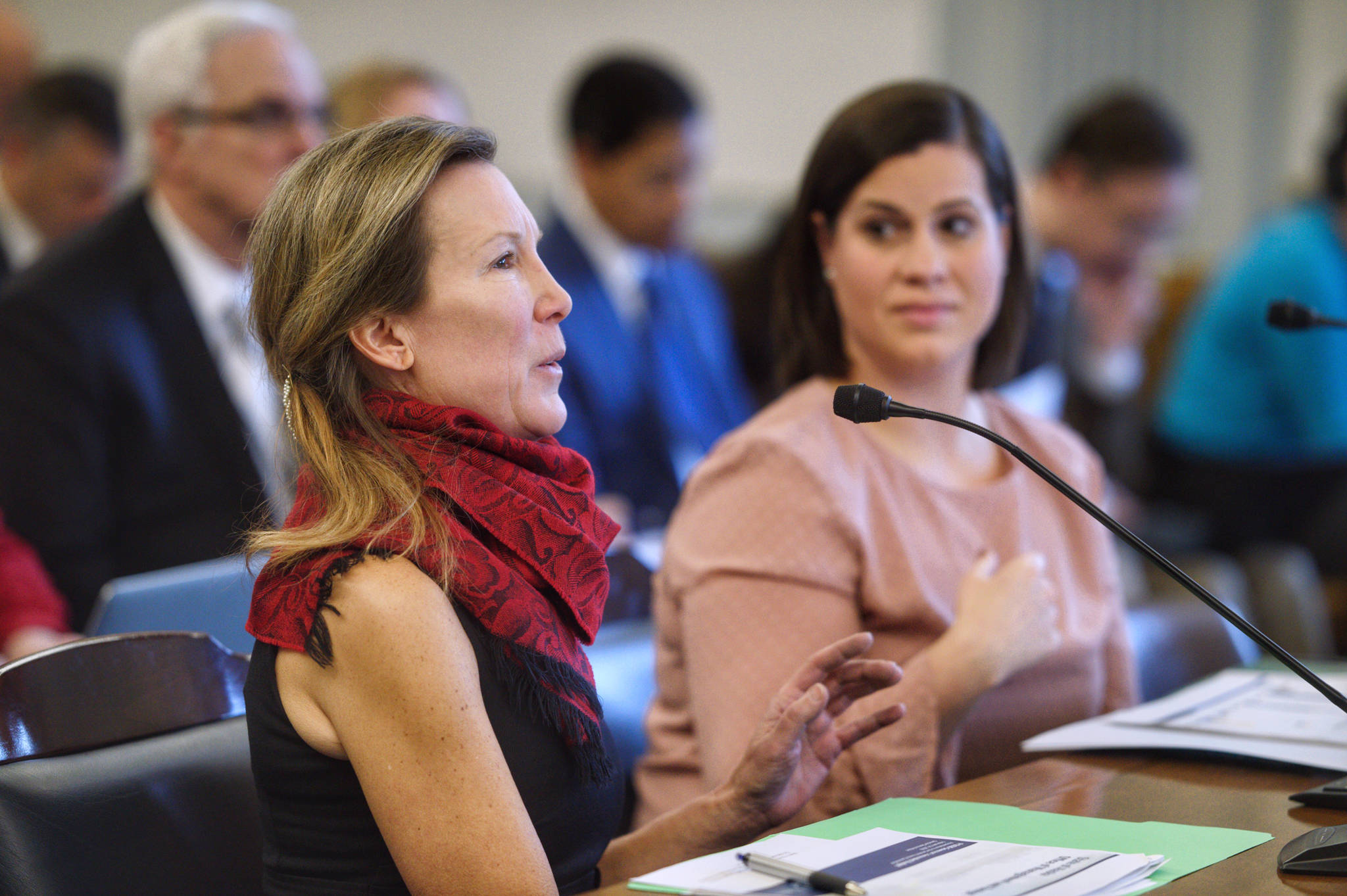Job losses are on the horizon for Alaska if Gov. Mike Dunleavy’s budget proposal goes through, experts say, and it’s unclear how much — or little — economic impact research the Office of Management and Budget did prior to releasing the proposed budget.
A 2016 study from the University of Alaska Anchorage Institute of Social and Economic Research (ISER) estimated that the state loses about 1,000 jobs for every $100 million that the state cuts in its budget. Dunleavy’s proposed budget includes $1.6 billion in cuts, which by the study’s findings would lead to about 16,000 jobs gone.
One of the authors of that study, UAA Associate Professor of Economics Mouhcine Guettabi, said in a phone interview Thursday that he estimates between 13,000 and 20,000 jobs could be lost in the span of a year if this budget proposal goes through as is.
“These are immediate losses that take into account not just government losses, but also losses because people are no longer eating out, no longer spending money. It’s what’s referred to as indirect or induced (impacts), meaning you actually follow the money downstream and look at how that reduction in spending by both businesses and individuals actually affects the statewide economy.”
[Dunleavy’s budget proposal proposes to cut hundreds of jobs]
During a Senate Finance Committee meeting Thursday, senators peppered OMB Director Donna Arduin with questions about the proposal and its impacts to communities. They got very few answers, as Arduin deflected many pointed questions from the senators on the committee about the implications of the budget proposal.
Sen. Bill Wielechowski, D-Anchorage, was particularly dogged with his questions Thursday. He repeatedly asked Arduin if OMB had done studies on how the budget might affect everyday Alaskans. For the most part, Arduin deferred those questions to OMB Chief Economist Ed King — who was not in attendance.
“When the economist is here, he can present the analysis that he has available,” Arduin said, repeating that sentiment throughout the meeting.
King referred an interview request from the Empire to OMB press personnel, who did not return a phone call.
Wielechowski specifically asked Arduin about the 2016 ISER study about state cuts leading to job losses. Arduin said she doesn’t believe it tells the whole story.
“My reading of that analysis is, it takes into account one side of the equation, which is an analysis of the resulting reduction in government jobs, but the analysis does not take into account the other side of the equation,” Arduin said.
One main factor in that other side of the equation, she said, is issuing a larger Permanent Fund Dividend — one of Dunleavy’s top priorities. Doing this will help fuel the private sector, she said multiple times in Thursday’s presentation. The private sector will also thrive because there will be less of a threat of taxes with the current administration in place, she said. Dunleavy has vehemently opposed an income tax in statements during his campaign and term.
“The reduction of 600 government jobs will be more than offset by the positive effects to the private sector,” Arduin said.
An ISER study shows the PFD helps the economy in the short term, Guettabi said, but he said there’s a “tremendous amount of anxiety” about the state’s economy that might deter people from running out and spending that money.
[Proposed Medicaid, health care cuts spark outrage]
Looking ahead
In looking at the long term, Guettabi said cuts to education — Dunleavy’s proposed budget cuts the University of Alaska’s operating budget nearly in half — are worrisome. If the workforce is less educated, he said, the state’s economy will struggle.
“I think how this plays out in the long run will depend on how these changes affect education, health care, and general quality (of) life. If these attributes are negatively affected and Alaska becomes a less attractive place, then it is not a good outcome.”
Speaking to the Empire after presenting to the Juneau Chamber of Commerce on Feb. 7, King said there will be job losses in the short term but the future of the economy depends on how people react. Some might get a job elsewhere in the state, some might start their own business or some might leave the state, he said, but everything will even out in the long run.
“Everybody’s going to react to this situation, and it’s going to stabilize,” King said. “That’s how an economy functions. From there, it’s going to grow again.”
Arduin, King and others from OMB will continue presenting to the Senate Finance Committee on Friday and into next week, breaking down different aspects of the budget and fielding questions from the senators. Sen. Bert Stedman, R-Sitka, is the chair of the committee, and began Thursday’s meeting by saying they hope to get an operating budget through the Legislature and to Dunleavy in early May.
Until then, there will be many long meetings and late nights for lawmakers.
“This is the beginning of a very lengthy process,” Stedman said. “There will be a lot of interest from around the state, so it might be a little more detailed and time-consuming than the previous years.”
• Contact reporter Alex McCarthy at 523-2271 or amccarthy@juneauempire.com. Follow him on Twitter at @akmccarthy.

